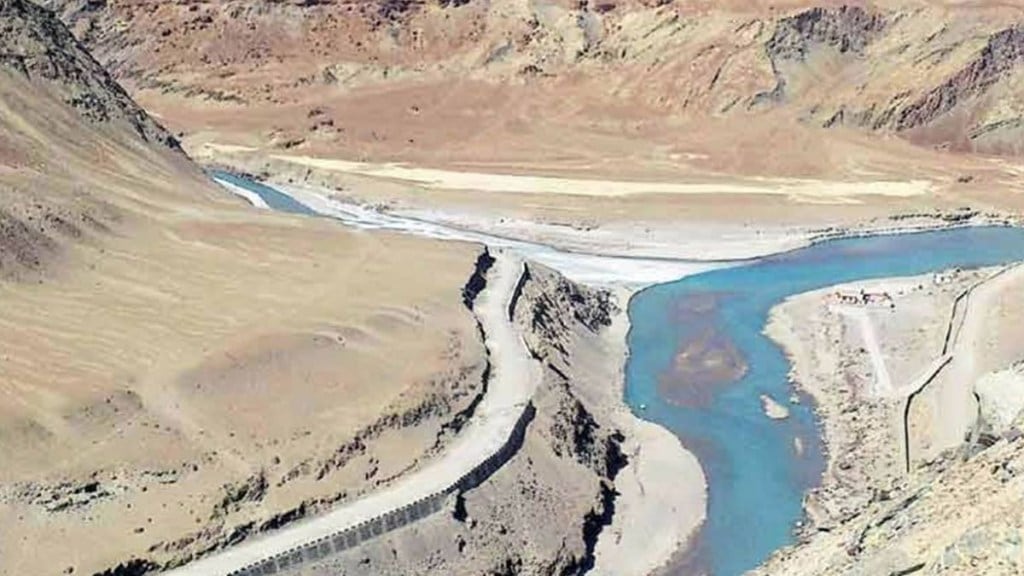By Neeraj Singh Manhas and Nabeela Siddiqui
Sustainable Development Goal (SDG) 6 on water and sanitation is one of the most critical goals of Agenda 2030. SDG 6.5 within SDG 6 discusses transboundary water cooperation, which is driven by two central concepts: sustainable water management and regional collaboration. In recent times, there has been increased attention on the Indus Water Treaty due to escalating tensions between India and Pakistan. The spotlight on this treaty emerged as India initiated a “Notice of Modification” on January 25, 2023. The notice was sent to Islamabad, indicating India’s desire to initiate discussions on potential changes to the treaty. However, Pakistan is yet to respond to India’s notice. This action by India was based on Article XII (3) of the treaty, which permits modifications through a ratified treaty between the two governments.
According to sources within the Indian government, a proposal has been made to Pakistan to hold a meeting on 15th July, 2023 to discuss the potential renegotiation of the Indus Waters Treaty. The treaty, which was signed in 1960, governs the sharing of the Indus River waters between the two countries. According to the treaty signed, it allocates three rivers in the east to India and three rivers in the west to Pakistan. This allocation of river waters was based on the geographical distribution and historical usage patterns of these rivers.
The Indus Water Treaty is a crucial agreement based on sustainable water management principles entered between India and Pakistan that was mediated by the World Bank. This agreement has been widely acknowledged as one of the most successful and beneficial water-sharing initiatives ever implemented on a global scale, spanning 62 years. Although, It’s important to note that the situation is still evolving, and further developments and official statements from the governments involved will provide a clearer understanding of the motivations and objectives behind the desire to renegotiate the Indus Waters Treaty.
The treaty is a legally binding agreement that outlines the rights and responsibilities of two countries in regard to the use of the Indus River system. It establishes methods for resolving disputes and sets an example for other international water treaties, thereby promoting effective global water management. The treaty also includes provisions for environmental considerations, demonstrating the integration of environmental concerns into agreements about shared water resources. This aligns with the principles of sustainable development and the preservation of ecosystems.The treaty’s existence and adherence illustrate the acknowledgment and acceptance of international legal principles, such as the fair and reasonable use of shared water resources. Furthermore, it contributes to the development of international water law and serves as a reference for the creation of similar agreements worldwide.
There have been substantial shifts in the weather patterns and population expansion in India and Pakistan ever since the treaty was signed, and these changes demand that the accord be re-evaluated to account for them. The Indus River system is home to a number of species that are in risk of extinction and maintains a diversified ecosystem; yet, it is in danger as a result of climate change and increased human activity. These factors have put a significant amount of pressure on water supplies, which highlights the need for a water-sharing mechanism that is both more extensive and adaptable. Knowledge and information are essential for greater collaboration, such as the effects of climate change or recently discovered sources of pollution, as well as for day-to-day cooperation between states. The existing deal places its primary emphasis on equitable distribution of the waters of the Indus River system and its tributaries, to the exclusion of other rivers and sources of water that are not specifically addressed in the pact. As a direct consequence of this, disagreements have arisen over how to best utilise these additional water resources.
The treaty in its present form mentions a non-tiered dispute resolution mechanism which may be modified to be more efficient and time-saving. There also lies a possibility for spelling out the jurisdiction of the International Court of Justice, which is not currently provided for in the treaty, could be negotiated and used as a dispute resolution mechanism. Since the treaty is primarily concerned with irrigation and agriculture, it does not contain any provisions for sharing water resources in order to generate hydroelectric power. It would be in everyone’s best interest to re-examine the treaty and incorporate measures for the sharing of hydroelectric power, especially in light of the growing significance of renewable energy sources. The constantly shifting geopolitical dynamics between India and Pakistan, which have been defined by tensions and conflicts, have also had an effect on the treaty’s implementation. It is possible to resolve these issues and use the treaty as a foundation for fresh collaboration if it is reviewed and updated.
Due to the fact that it is contingent on a myriad of different political, economic, and social circumstances, it is not possible to forecast with absolute certainty whether or not India will amend the Indus Water Treaty. This choice will be made after thorough analysis of all relevant circumstances and with the intention of advancing the national interests of the country. If any potential changes ought to be sought it will be via diplomatic channels, with due regard for the concerns and interests of both states. In order to effectively address water-related challenges, it is essential to prioritise these two key guiding concepts: sustainable water management and regional collaboration thereby committing to SDG 6.
Neeraj Singh Manhas is the Director of Research in the Indo-Pacific Consortium of Raisina House, New Delhi and Nabeela Siddiqui is an Assistant Professor (Law).
Disclaimer: Views expressed are personal and do not reflect the official position or policy of Financial Express Online. Reproducing this content without permission is prohibited.

